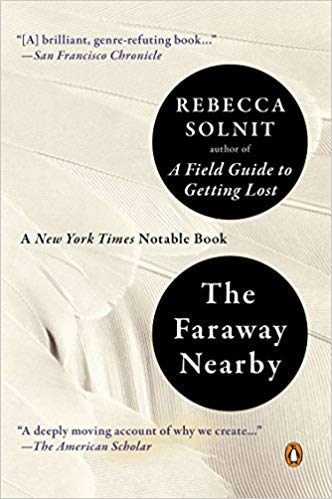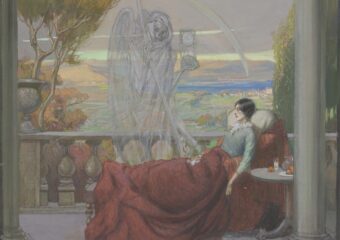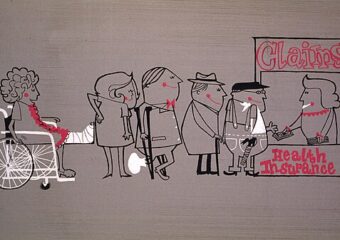People with dementia experience a deterioration in their mental and physical functions over time. The particular functions affected can vary as can the rate of deterioration. Biomedical texts typically characterize these changes in neuropsychiatric terms based on behavioral observations and clinical findings. At a certain stage of dementia, and not an advanced stage, the people with dementia cannot describe their experience in much detail if at all. Authors of literary fiction and nonfiction who bring characters and subjects with dementia into their stories have had to imagine what the experience must be like. These literary renderings can elaborate on the clinical descriptions such that they relate more to what people actually experience in their lives.
Here a classic biomedical description of dementia is compared to descriptions taken from a memoir-like book written by Rebecca Solnit.
The Biomedical
From Harrison’s Principles of Internal Medicine, 21st edition, McGraw-Hill, 2022
In the middle stages of AD, the patient is unable to work, is easily lost and confused, and requires daily supervision. Language becomes impaired—first naming, then comprehension, and finally fluency. Word-finding difficulties and circumlocution can be evident in the early stages, even when formal testing demonstrates intact naming and fluency. Apraxia emerges, manifesting as trouble performing learned sequential motor tasks such as using utensils or appliances. Visuospatial deficits begin to interfere with dressing, eating, or even walking, and patients fail to solve simple puzzles or copy geometric figures. Simple calculations and clock reading become difficult in parallel.
Rabinovici GD, Seeley WW, Miller BL. Alzheimer’s Disease. In: Loscalzo J, Fauci A, Kasper D, Hauser S, Longo D, Jameson J. eds. Harrison’s Principles of Internal Medicine, 21e. McGraw Hill; 2022. Accessed October 12, 2023. https://accesspharmacy.mhmedical.com/content.aspx?bookid=3095§ionid=262997915
The Literary
From The Faraway Nearby, by Rebecca Solnit, Penguin Books, New York, 2014*
This book covers several subjects and events. Among them is the story of the author’s involvement in the care of her mother when she had Alzheimer’s disease. During this time, Solnit recorded her observations, many of which elaborate on biomedical concepts of dementia and provide acute and unexpected insights on her mother’s experiences and those of her’s and her siblings’.
I thought of my mother as a book coming apart, pages drifting away, phrases blurring, letters falling off, the paper returning to pure white, a book disappearing from the back because the newest memories faded first, and nothing was being added. The words were beginning to vanish from her speech, leaving blank spots behind.
p. 10
She had achieved something of the state people strive for through spiritual practice: a lack of attachment to the past and future and a wholehearted participation in the present. It had come as part of a catastrophic terminal illness, not a devotional pursuit, but it came.
p. 224
Nearly all the grudges, comparisons, expectations, resentments, ancient histories, and anxious anticipations seemed to disappear in that second spring of her life when she seemed to have lost as many bad as good things and achieved a new equilibrium and a new joy.
pp. 224-5
Liberated from the burden of her past, things became incomparable, each slice of cake the most delicious cake ever, each flower the most beautiful flower…and was often almost giddy with enthusiasm.
p. 225
My mother became different people, one after another, in the years after that apricot summer. She was a happy child for a couple of years, then the precarious balance shifted, and she had more trouble with everything. It resembled in some ways the stages of childhood running in reverse, and as with a child, whatever arrangements suited her at a given stage didn’t necessarily work when the next one arrived.
p. 228
*A review of the Solnit’s book is posted here under What These Works Say.



